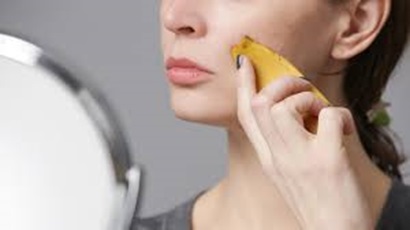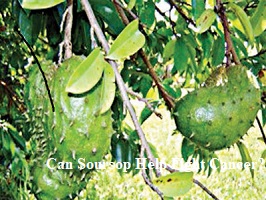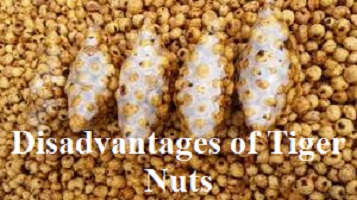Benefits of Plantains on Skin
Benefits of Plantains on Skin
Massaging your skin with plantain peel can effectively reduce wrinkles by tightening and toning the skin.

Yet, opting for organic skincare products containing plantain peel extract provides a simpler, more convenient, potentially less messy, and time-saving alternative.
Benefits of Plantains on Skin ~ What are Plantains
Plantains are a type of banana, specifically a starchy variety that is typically larger and firmer than the sweet, soft bananas most commonly eaten as a fruit.
They belong to the genus Musa, like bananas, and are native to Southeast Asia. Plantains are a staple food in many tropical regions around the world, particularly in Africa, the Caribbean, and Central and South America.
Plantains are usually cooked before eating, as their high starch content makes them unsuitable for consumption when raw.
They can be boiled, fried, grilled, or baked and are used in a variety of savory and sweet dishes. In some cuisines, they are treated more like vegetables than fruit due to their starchy nature.
Benefits of Plantains on Skin ~ Plantain Nutritional Value
Plantains offer several nutritional benefits, including being a good source of carbohydrates, fiber, vitamins, and minerals such as potassium and vitamin C.
They are often used as a substitute for potatoes or rice in dishes, and they can also be used to make snacks like plantain chips or tostones (fried green plantain slices).
In addition to their culinary uses, plantains have been used in traditional medicine for various purposes, including promoting digestive health and wound healing.
Benefits of Plantains to the Body
Plantains are a variety of bananas that stand out for their larger size and firmer texture. Unlike the sweet, soft bananas commonly eaten raw, plantains are starchy and typically cooked before consumption.
Originating from Southeast Asia, they belong to the Musa genus, akin to banana. They have become a dietary staple in tropical regions worldwide, notably in Africa, the Caribbean, and Central and South America.
Due to their starchiness, plantains are utilized in various culinary applications. They can be boiled, fried, grilled, or baked and are incorporated into both savory and sweet dishes.
Often likened to vegetables, they contribute carbohydrates, fiber, potassium, vitamin C, and other essential nutrients to meals.
Benefits of Plantains on Skin ~ Planyain Alternatives
Plantains are frequently employed as substitutes for potatoes or rice and can be fashioned into snacks such as plantain chips or tostones (fried green plantain slices).
Beyond their culinary versatility, plantains have historical applications in traditional medicine, purportedly aiding in digestive health and wound healing.
They also have potential benefits for skincare, as discussed earlier. Overall, plantains are a versatile and nutritious food that plays a significant role in many cuisines worldwide.
Benefits of Plantains on Skin ~ Plantain Skin
“Plantain skin” typically refers to the outer peel or rind of the plantain fruit, which is a type of banana.
It is thick and tough compared to the inner flesh of the fruit. Plantain skins are green when unripe and turn yellow or black as they ripen.
While the inner flesh of the plantain is commonly consumed as food, especially when ripe, the outer skin is usually discarded.
However, some people use plantain skins in various ways, such as composting or using them in natural skincare remedies, as discussed earlier.
Benefits of Plantains on Skin
Plantains offer several potential benefits for the skin when applied topically or consumed as part of a balanced diet:
Moisturizing properties: Plantains contain water and essential nutrients like vitamins A, C, and E, as well as minerals such as potassium.
These nutrients can help hydrate and moisturize the skin, making it appear healthier and more radiant.
Effects of antioxidants: Vitamin C and flavonoids, two types of antioxidants found in plantains, can help shield the skin from the oxidative stress that free radicals cause.
This may reduce signs of aging such as wrinkles, fine lines, and age spots.
Anti–inflammatory properties: Plantains contain compounds with anti-inflammatory properties, such as vitamin C and certain flavonoids.
Applying plantain-based products or using plantain-infused remedies may help reduce inflammation associated with conditions like acne, eczema, and psoriasis.
Wound healing: Some studies suggest that plantains may have wound-healing properties due to their content of compounds like allantoin and vitamin C.
Applying plantain-based preparations to wounds or minor skin injuries may promote faster healing and reduce the risk of infection.
Exfoliation: The natural enzymes present in plantains, such as papain, can act as gentle exfoliants when applied to the skin.
Exfoliating with plantain-based products or using mashed plantains in homemade masks may help remove dead skin cells, revealing smoother and brighter skin underneath.
Acne treatment: Plantains contain compounds with antibacterial properties, which may help combat acne-causing bacteria when applied topically.
Furthermore, the anti-inflammatory effects of plantains may help reduce redness and swelling associated with acne breakouts.
Sun protection: While not a substitute for sunscreen, plantains contain antioxidants like vitamin C, which may help protect the skin from sun damage when applied topically.
However, it’s essential to use sunscreen with adequate sun protection factor (SPF) alongside any natural remedies for sun protection.
Skin tone enhancement: Some people claim that using plantain-based products or applying mashed plantains to the skin can help even out skin tone and reduce the appearance of dark spots or hyperpigmentation.
This effect may be attributed to the presence of vitamins and antioxidants in plantains.
It’s important to note that while plantains offer potential benefits for the skin, individual responses may vary.
Additionally, it’s advisable to perform a patch test before using any new skincare product or remedy to check for potential allergic reactions or skin sensitivities.
If you have concerns about using plantains on your skin, consult a dermatologist or healthcare professional for personalized advice.


